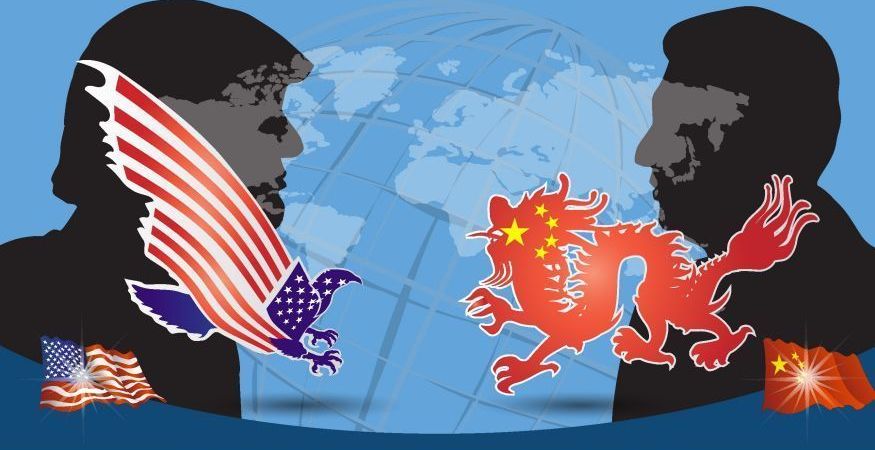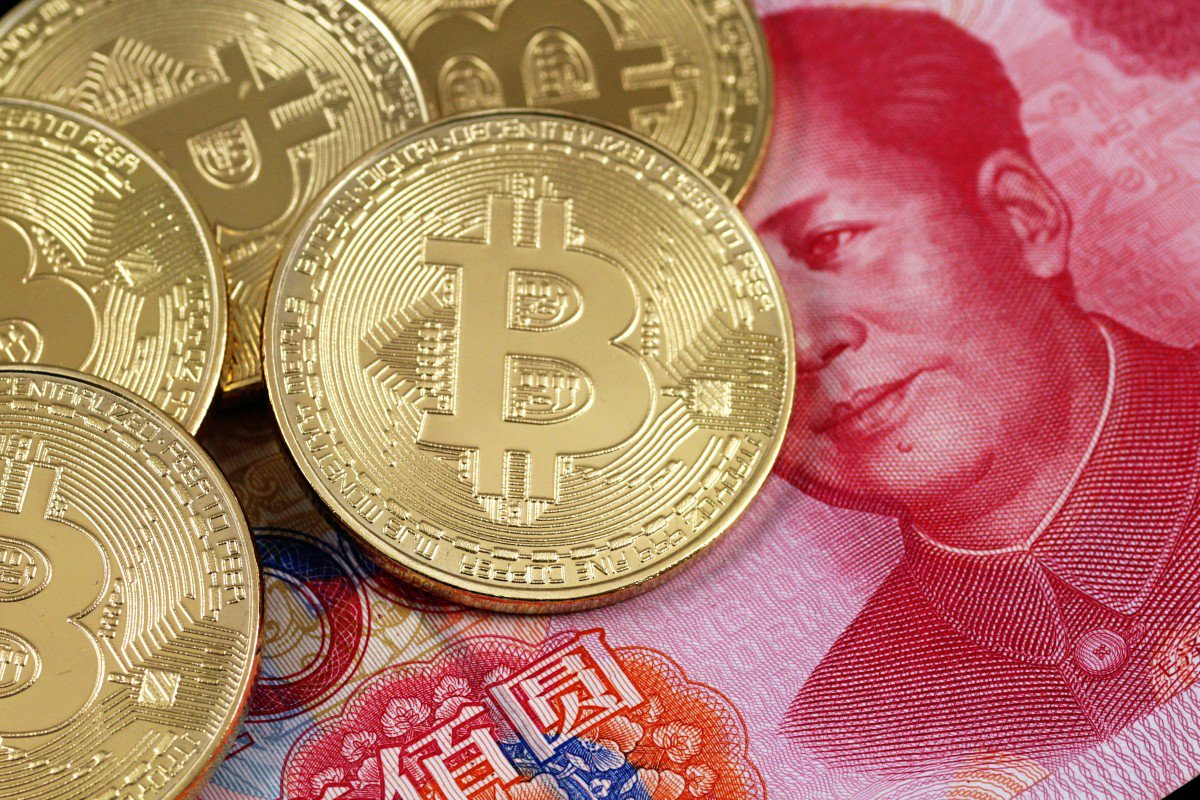How the US China Trade War drives the price of Bitcoin

How the US China Trade War drives the price of Bitcoin
The Commercial War between the two great world powers, the United States and China, takes the news every time there is a new event. Politicians, businessmen, social leaders, all react to the advances and setbacks in the negotiations between the Asian giant and the American great. However, what few analyze is the effect that this War has on the price of Bitcoin.
To understand this effect, we must start by talking about the influence of monetary policy on international trade. Sometimes, when reading news about the Commercial War, information about the so-called "competitive devaluations" may appear, that is, as some countries decide to decrease the value of their national currency to boost their exports.
This may sound counter-meaning, after all. How can it be positive for a country's exports that its currency is worth less? Well, the answer is simpler than it may seem.
Imagine for a moment that we are a producer of chairs in Cryptoland, and we want to export our merchandise in order to capture foreign exchange. These chairs have a cost of production in our national currency, the Crypto, as well as a sale price that we assign according to market conditions.
If we usually sell our chairs to 10 cryptos, and the current exchange rate is 1 crypto for 1 dollar, that means that a foreign importer will have to invest $ 10 for each of the chairs that you buy from us. Now, if our government decides to perform a devaluation of our currency by placing it in 2 cryptos for 1 dollar, this means that the same chair that cost 10 dollars yesterday can now be acquired abroad for 5 dollars.
Even if we increase the price of the chair in the national market to 15 crypts, the buyer of our chair will still save $ 2.5 on the purchase of our product. Generally this way of obtaining a competitive advantage in international trade is considered dishonest, as long as a market is achieved for the products of our country, not thanks to an improvement in productivity that allows lower costs, but due to financial manipulations.
On the other hand, for the citizens of the country that devalue their currency, this means that their income is worth less in terms of currencies than they did before the devaluation, thus decreasing their purchasing power.
Very good, but what does all this have to do with Bitcoin? Well, this explanation is key to understanding the recent increases in the price of the BTC. In the middle of the Trade War between the United States and China, the Asian nation, when faced with US tariff barriers, needs a method to be able to maintain its level of exports even if those directed to the United States decrease.
The method chosen by the Chinese government is competitive devaluation, which has led the currency of this country to fall to 7.0340 yuan per dollar on Monday, appreciating up to 6.9683 yuan per dollar for this Tuesday.
These types of actions generate expectations in world markets, especially when central banks around the world have made statements that seem to point towards the implementation of expansive measures, to maintain the levels of economic growth in the midst of the Trade War. This type of measures has as a counterpart the devaluation of the currency of the country that applies them.
Therefore, citizens and investors around the world, facing the uncertainty prevailing in international politics, are looking for assets that serve as an alternative to protect the value of their money, such as gold, and of course, Bitcoin, which allows us to better understand one of the most important factors behind the recent bullish rally: The influence of international politics in the markets.

The Commercial War between the two great world powers, the United States and China, takes the news every time there is a new event. Politicians, businessmen, social leaders, all react to the advances and setbacks in the negotiations between the Asian giant and the American great. However, what few analyze is the effect that this War has on the price of Bitcoin.
To understand this effect, we must start by talking about the influence of monetary policy on international trade. Sometimes, when reading news about the Commercial War, information about the so-called "competitive devaluations" may appear, that is, as some countries decide to decrease the value of their national currency to boost their exports.
This may sound counter-meaning, after all. How can it be positive for a country's exports that its currency is worth less? Well, the answer is simpler than it may seem.
Imagine for a moment that we are a producer of chairs in Cryptoland, and we want to export our merchandise in order to capture foreign exchange. These chairs have a cost of production in our national currency, the Crypto, as well as a sale price that we assign according to market conditions.
If we usually sell our chairs to 10 cryptos, and the current exchange rate is 1 crypto for 1 dollar, that means that a foreign importer will have to invest $ 10 for each of the chairs that you buy from us. Now, if our government decides to perform a devaluation of our currency by placing it in 2 cryptos for 1 dollar, this means that the same chair that cost 10 dollars yesterday can now be acquired abroad for 5 dollars.
Even if we increase the price of the chair in the national market to 15 crypts, the buyer of our chair will still save $ 2.5 on the purchase of our product. Generally this way of obtaining a competitive advantage in international trade is considered dishonest, as long as a market is achieved for the products of our country, not thanks to an improvement in productivity that allows lower costs, but due to financial manipulations.
On the other hand, for the citizens of the country that devalue their currency, this means that their income is worth less in terms of currencies than they did before the devaluation, thus decreasing their purchasing power.
Very good, but what does all this have to do with Bitcoin? Well, this explanation is key to understanding the recent increases in the price of the BTC. In the middle of the Trade War between the United States and China, the Asian nation, when faced with US tariff barriers, needs a method to be able to maintain its level of exports even if those directed to the United States decrease.
The method chosen by the Chinese government is competitive devaluation, which has led the currency of this country to fall to 7.0340 yuan per dollar on Monday, appreciating up to 6.9683 yuan per dollar for this Tuesday.
These types of actions generate expectations in world markets, especially when central banks around the world have made statements that seem to point towards the implementation of expansive measures, to maintain the levels of economic growth in the midst of the Trade War. This type of measures has as a counterpart the devaluation of the currency of the country that applies them.
Therefore, citizens and investors around the world, facing the uncertainty prevailing in international politics, are looking for assets that serve as an alternative to protect the value of their money, such as gold, and of course, Bitcoin, which allows us to better understand one of the most important factors behind the recent bullish rally: The influence of international politics in the markets.
Conclusion
These financial institutions and mega-corporations are extremely IMPORTANT to the industry. Regardless of your thoughts on their projects, they bring EYES to cryptocurrency which is what we need. Adding further to this, the fact that financial institutions are putting money in the industry only adds to the mainstream confidence for cryptocurrency.
For these reasons stated, I do believe that we will see a bull-run similar to that of 2017, however, I also feel we have a stronger foundation to be able to continue further and allow the bull run to last much longer.
Comments
You can login with your Hive account using secure Hivesigner and interact with this blog. You would be able to comment and vote on this article and other comments.
No comments